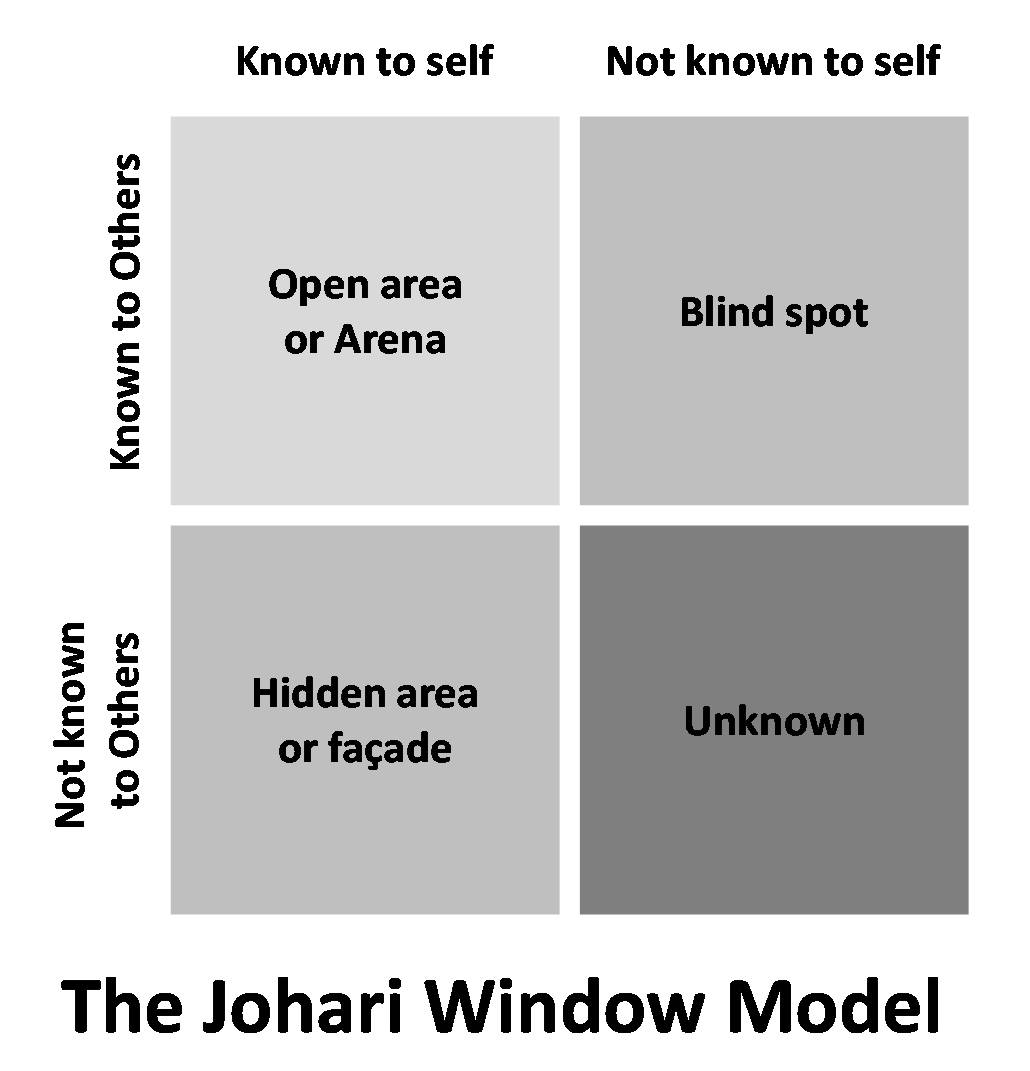This article originally appeared in Inc. If you like this article,
- Click here to download Peter's FREE eBook, 5 Essential Steps to Growing Your Business with Millennials.
Of all the advice I've ever given to aspiring entrepreneurs, my favorite is this one quote about owning a business: Entrepreneurship is 10% about business, 100% about people and 1,000% about yourself.
No, I wasn't a math major, but any entrepreneur will tell you that that math is nonetheless true. That's why many organizations that help entrepreneurs are focused on personal development as well as business development. No organization can advance faster than its leader, which makes personal development essential.
When I joined Entrepreneurs' Organization and became part of its more than 11,000 members, I learned about a framework called the Johari window. As Wikipedia puts it, the Johari window is a "technique used to help people better understand their relationship with themselves and others." It was created by psychologists Harrington Ingham and Joseph Luft, and consists of four panes that graphically appear like a window:

The panes, or quadrants, have four combinations that describe the state of any characteristic you possess, depending on who recognizes it. The combinations are:
Known to others, and known to self
This quadrant describes everything that is known by everyone. For instance, you might know you are dependable, and others might know you are dependable. You recognize your ability, and so do others. Most of the elements that make up our personalities fit into this quadrant.
Not known to others, but known to self
This quadrant describes things that are essentially your secrets. For instance, others might not see that you are fearful, but you might know you are fearful. In this case, fear is a feeling you don't share with others, for some reason or another. All of us have elements in this quadrant, whether we want to admit it or not -- things we fear, things we're ashamed to admit, and so forth.
Not known to others, and not known to self
This quadrant contains elements of ourselves that we haven't yet recognized. However, no one else has recognized them, either, making them simply unknown to everyone. These are characteristics that may come out over time as we mature, for instance, but in the meantime they aren't obvious to others, and therefore aren't necessarily helpful nor detrimental to us.
Known to others, but not known to self (the blind spot)
This is the most enlightening quadrant of the Johari window, commonly known as the "blind spot." This quadrant contains elements that others know about us, but that we are not yet able to see, admit to or otherwise recognize. For instance, you might truly believe that you are not afraid, while everyone else can see that you obviously are. All of us have elements in this quadrant to some degree or another, and it is this quadrant that we focus on most as entrepreneurs in a constant state of personal development.
The blind spot is the most prohibitive quadrant of all. Characteristics that live in this quadrant may prevent you from success, because they aren't in alignment with the truth.
For instance, if everyone widely recognizes that you are unreliable, they will most likely respect you for admitting you are unreliable and taking steps to correct that characteristic. If, however, you absolutely refuse to accept that you're unreliable, that delusion creates distrust between you and everyone else, because everyone else already recognizes the truth of your situation.
All kinds of things live in our blind spots -- from denial, to distrust, to anger, to resentment, to too much optimism, to too much alcohol, to too little exercise, and much, much more. The trick is to first recognize that you even have a blind spot (hint: we all do). Then, you must honestly identify which of your characteristics reside in that blind spot.
Only by first recognizing these elements can we even begin to honestly address them and improve upon them, which puts us back in a trustworthy position with those around us.
So ask yourself: what's in your blind spot? What do others know about you, that you aren't willing to admit to yourself? How might those disrepancies be holding you back?
Since I learned about the Johari window, I think about it all the time -- often second-guessing myself on what truly lives in that quadrant, and what doesn't. But above all, I know that all of that self-reflection is necessary if I want to know myself better.
As Socrates said, "To know thyself is the beginning of wisdom." Now's the time to get started.
